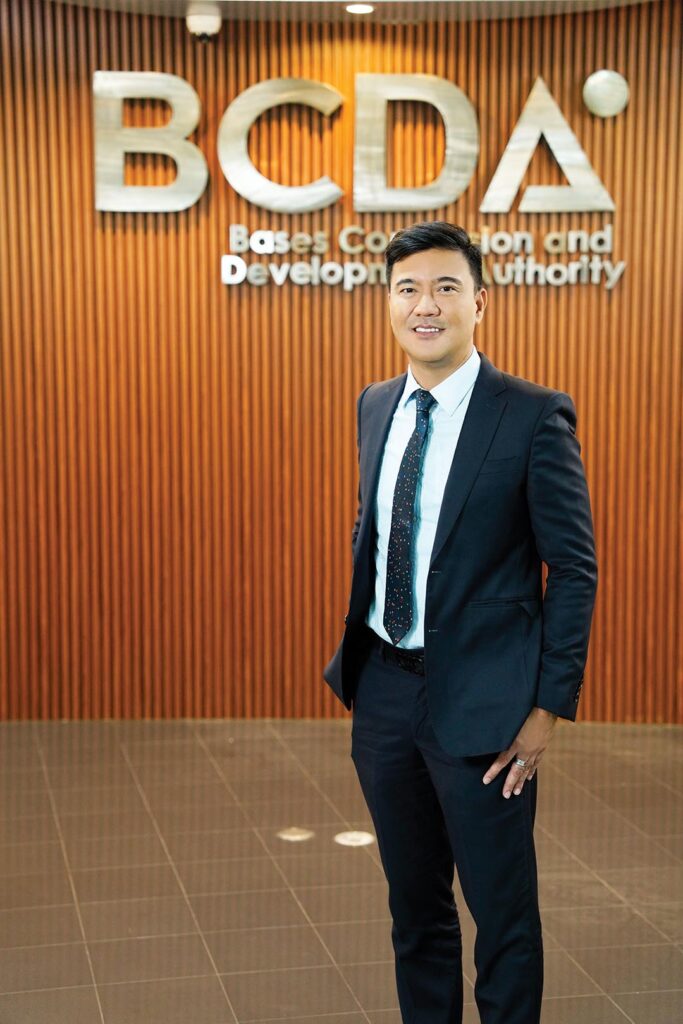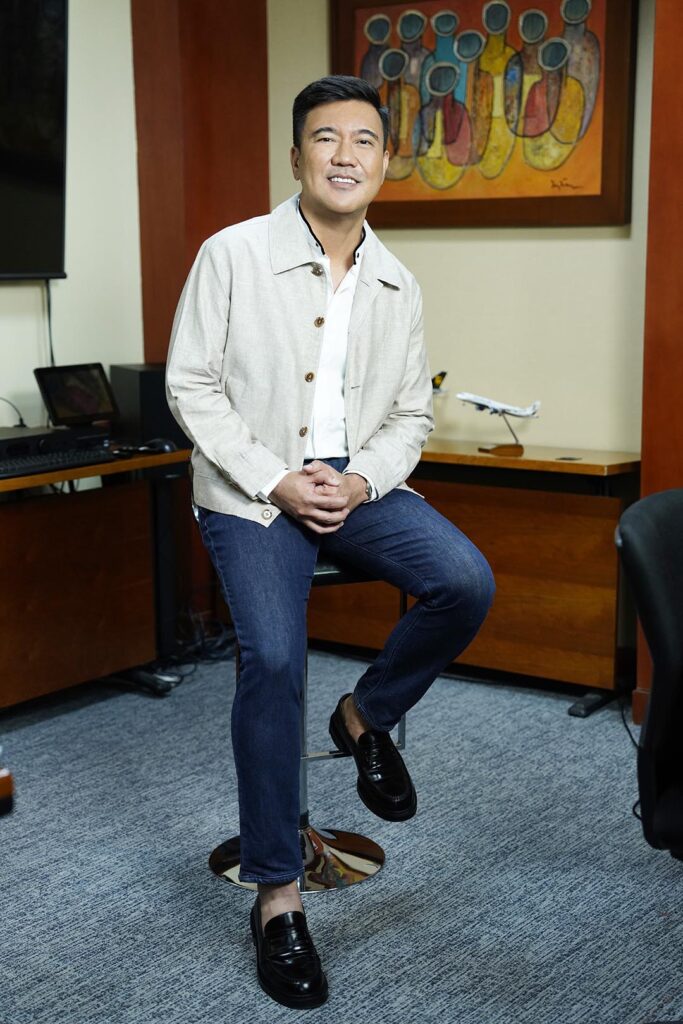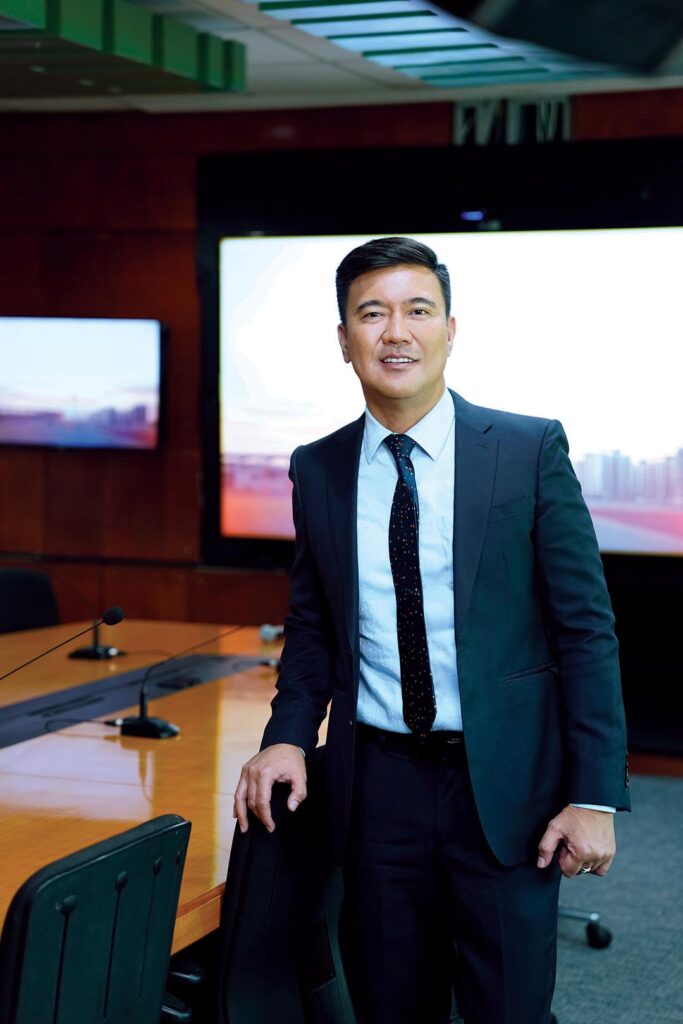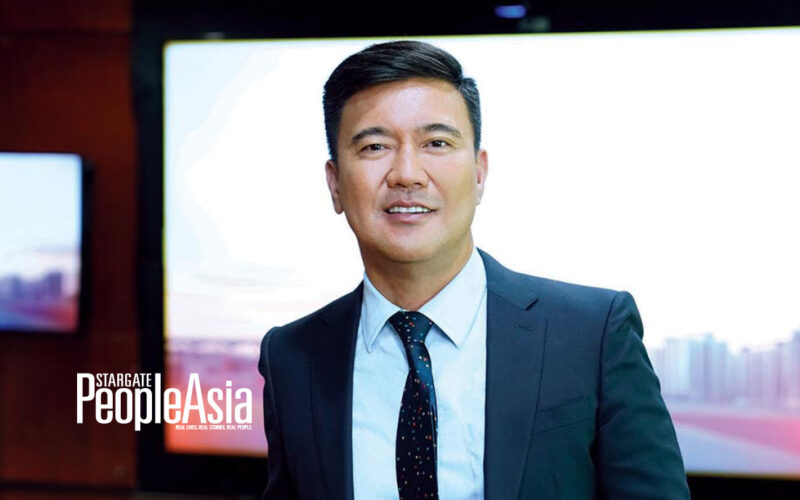Great cities are not built overnight. But that does not mean they cannot be built. Bases Conversion and Development Authority (BCDA) president and CEO Joshua M. Bingcang, an engineer who has been involved in the expansion of Clark International Airport, the construction of the Subic-Clark-Tarlac Expressway (SCTEX) and the development of the Clark Freeport and Special Economic Zone and New Clark City in various capacities knows this all too well.
By JOYCE REYES-AGUILA
Prior to heading BCDA, Joshua M. Bingcang carved the business strategy and construction plan for what BCDA is describing as the country’s “first smart, green and resilient metropolis” — New Clark City. He was then senior vice president for BCDA’s conversion and development group.
“We need to scale up to compete with the best in the region,” he tells PeopleAsia about the planned smart city, where a business district will also be located. Its masterplan also includes five-star hotels, resorts, universities, lifestyle and nature destinations and even a theme park, among others. “It’s BCDA’s driver for growth,” he says. “New Clark City has 9,450 hectares, the Clark Freeport Zone is 4,000 hectares
Combined, it’s around 13,000 hectares. That’s a substantial size. It’s a matter of maximizing the potential of the brownfield area, while developing the growth prospect of the greenfield area.”
This will include ensuring that it has effective transportation, affordable housing facilities and other elements that make such modern cities flourish. Bingcang knows the end-to-end development journey all too well, having been with BCDA in various capacities for close to three decades.
Through the years, he has led dialogues with farmers, residents and even cause-oriented groups to present the developments being planned. “These are farmers who have permits from the Americans from 1947 or the 1950s to farm in the area. ‘The Americans did not ask me to leave, but a fellow Filipino will,’ that’s what they tell me. I come from a family of farmers so when I spoke to them, I understood what they feel because of my father and uncles.”

A son of Mexico, Pampanga, Bingcang’s roots have also played to his advantage when he advocates for the development. “I speak the same dialect and it helps establish rapport. My first job in BCDA was with community relations around 2014. I would go to remote areas to explain the plans to the leaders of the cause-oriented groups. Just like us, their concern is for the future of their children. We all want the same things. It’s just that we have different ideologies,” he adds.
Bingcang knows that working with the community is crucial to BCDA’s success. “If a community is against you, you’ll have to say goodbye to your project, even if the intention is good. The community should appreciate the value of the project. We should make them partners. Once you help them understand, they will be supportive.”
He was also involved in the public-private partnership (PPP) for the construction, and operations and maintenance of the Clark International Airport passenger terminal building that was conceived and completed during the Duterte administration.
‘The biggest room in the world’
As a leader, Bingcang always looks back at one of the best pieces of advice ever given to him. “One of the seniors here in BCDA told me on my first day that the biggest room in the world is the room for improvement. If you have the means and power to do something close to your heart and for your family and your neighbors, do it. It’s maybe something that’s hard to explain but it’s different if they see it,” he says.
These are words he keeps close to his heart, especially after President Ferdinand Marcos Jr. appointed him PCEO of Clark International Airport Corp. in March last year and BCDA PCEO three months later in June 2023. And he comes equipped for the job.

Aside from being a licensed engineer, Bingcang also holds a Master’s in Business Administration degree from the University of the Philippines, completed an Urban Policy and Governance program from the Nanyang Technological University in Singapore and trained at the Harvard Kennedy School in Public-Private Partnerships in Infrastructure in Cambridge, Massachusetts.
Bingcang aligns his acumen and skills with the agency’s two mandates: to raise revenues for the government to generate value for its stakeholders like the military, the government itself and the public, and to transform former military centers into vibrant economic centers. “They are different skillsets but they are both needed right now in my position to manage BCDA’s assets: raising revenues and transforming assets for viable economic development,” he says.
One Clark
Under his watch, the agency has maintained its status as a consistent revenue generator and profit center for the government. “I wanted to help this administration really bring the level of national development on par with the best in the region. That’s why I formed the One Clark Vision. For the longest time, people only knew of the Clark Freeport area and the airport. But those are pockets of the development inside Clark. The whole of Clark is more than 30,000 hectares, the size of Parañaque, Makati and Pasay combined,” he says.
He also believes that having such a multi-faceted modern city will enable the country to compete with the likes of Vietnam in manufacturing, and even Singapore in terms of technology and tourism. He shares such a vision with the President, Presidential Adviser on Investment and Economic Affairs Frederick Go and the Cabinet. “They know how Clark can contribute to the national government,” Bingcang says, adding that all projects under One Clark Vision are being executed already, such as the expansion of the Clark International Airport and creating a business district in Clark that is inspired by BGC.
Proving that BCDA is, indeed, able to deliver projects on time, is the inclusion of the airport, the railway and the food hub in Clark in the so-called Luzon Economic Corridor — an initiative that seeks to connect Luzon’s principal business hubs in Manila, Clark, Subic and Batangas. The BCDA chief also reports that the first investments of the Maharlika Investment Corp. (MIC) will go to BCDA and New Clark City, and that two of the five projects are targeted for groundbreaking this year.
Bingcang wants to return the favor to the government and citizens once the Senate approves the amendment of the Bases Conversion and Development Act of 1992. Among other provisions, the bill will convert five percent of BCDA economic zones to freehold status.
“I have proposed this so that people can buy property for residential use,” he explains. “You can currently only lease in Clark, so there’s no residential development in the area. We need a legislative act to make it possible. We already got the House approval last year. We’re now waiting for the second reading in the Upper House.
“This will also address the housing needs of the workers there,” he explains. “There are more than 140,000 workers in Clark, and only five percent live inside. The rest rent outside so it creates traffic, pollution — the common problems of big cities. But once we have residential areas right next to their workplace, we can address a key socio-economic requirement,” he says.

Photography by DREW CO
Art direction by DEXTER FRANCIS DE VERA
Grooming by KLENG TOTANES





